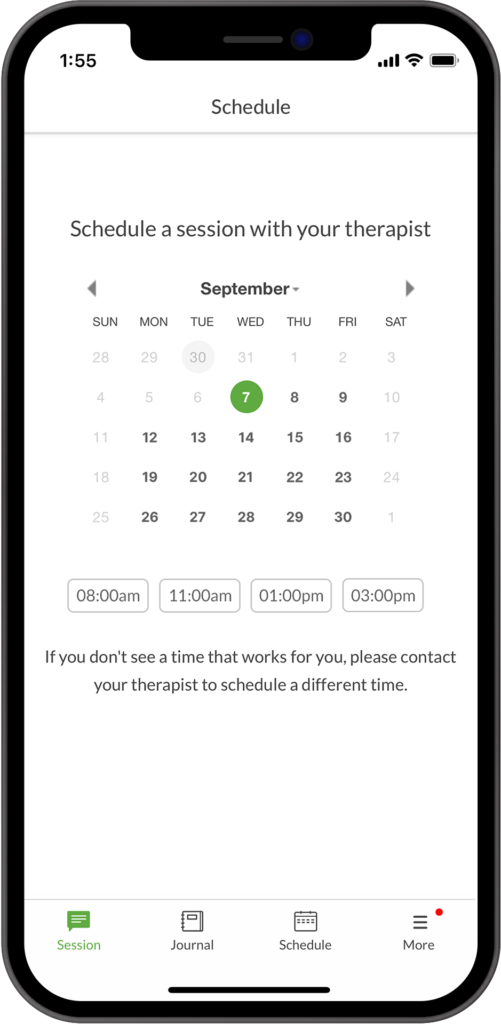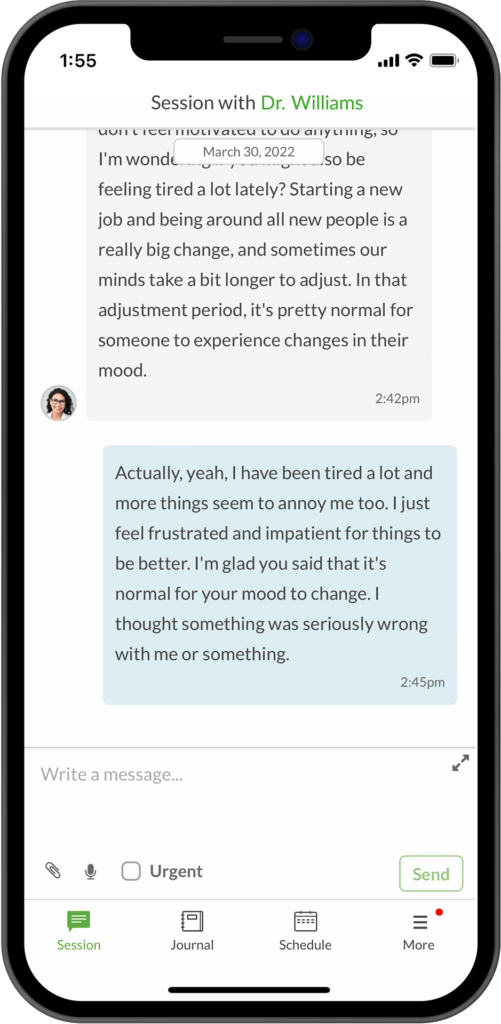Mantras for anxiety can be a powerful way to bring immediate calm to your present state. Mantras can affirm feelings of relaxation and help you instantaneously. I know how feelings of anxiousness can make your feel stressed and overwhelmed. And as a mindfulness practitioner I also know the power of mantras. I have 25 of the best mantras for anxiety below, but first let’s consider – What is anxiety? How different people process anxiety? How Mantras Work? And then we’ll get into the best ones you can start practicing right now along with an additional resource to help you with your anxiety.

Table of Contents
What Is Anxiety?
Anxiety is a natural human response to stress or perceived threats. It’s a feeling of fear, worry, or unease, typically anxiety comes up about something with an uncertain outcome. While experiencing occasional anxiety is normal and even helpful in certain situations, like an alert to potential danger, persistent or excessive anxiety can be problematic and ends up interfering with daily life.
Anxiety manifests in various forms, including generalized anxiety disorder (GAD), panic disorder, social anxiety disorder, specific phobias, and others. Symptoms of anxiety can vary widely from person to person but commonly include feelings of nervousness, restlessness, irritability, trouble concentrating, muscle tension, and sleep disturbances.
There are many factors that contribute to the development of anxiety disorders, including genetics, brain chemistry, personality, life events, and ongoing stress. Treatment for anxiety often involves a combination of therapy, medication, lifestyle changes, and self-care strategies aimed at managing symptoms and improving overall well-being.
How People Feel Anxiety?
Different people process anxiety in different ways, which is dependent on factors like personality, upbringing, coping mechanisms, and past experiences. Here are some common ways people may process anxiety:
- Cognitive Processing: Some people may primarily experience anxiety through their thoughts. They may ruminate on worst-case scenarios, have racing thoughts, or engage in negative self-talk.
- Emotional Expression: Others can express anxiety primarily through their emotions. They may feel overwhelmed by intense feelings of fear, worry, or sadness, which leads to mood swings or emotional outbursts.
- Physical Symptoms: Anxiety often manifests physically, with symptoms like muscle tension, headaches, stomach-aches, sweating, trembling, or rapid heartbeat. Some people may feel anxiety predominantly through these bodily sensations.
- Behavioral Responses: People sometimes will respond to anxiety by engaging in certain behaviors. This can involve avoiding triggering situations, like seeking reassurance from others, overeating, under-eating, using substances, or exhibiting compulsive behaviors.
- Social Interaction: Anxiety can also impact social interactions differently for each person. Some people will withdraw all together from social situations, while others may seek comfort and support from friends or loved ones. Social anxiety disorder specifically involves an overwhelming fear of social situations and scrutiny from others.
- Coping Mechanisms: Different people develop different coping mechanisms to deal with anxiety. These could be healthy ways like exercise, mindfulness, or creative activities, or it could be less healthy ways like substance use or avoidance.
- Cognitive Distortions: Some may engage in cognitive distortions, such as catastrophizing (expecting the worst), overgeneralizing (applying negative experiences to unrelated situations), or mind-reading (assuming negative thoughts from others).
- Spiritual or Philosophical Perspectives: For some, anxiety may be processed through spiritual or philosophical frameworks. They might seek solace in prayer, meditation, or existential reflections on the nature of suffering and resilience. Download the Ultimate Self-Inquisition Guide here to go deeper.
It’s important to recognize that there’s no one-size-fits-all approach to anxiety processing, and it’s perfectly fine to utilize a combination of these mechanisms. Understanding how you personally process anxiety can be helpful in developing effective coping strategies and seeking appropriate support when needed.
25 Mantras For Anxiety
Here are 25 Powerful and Effective mantras that you can use to help manage anxiety:
- “I am safe and secure in this moment.”
- “I breathe in calmness, I exhale tension.”
- “I release what I can’t control and focus on what I can.”
- “I trust in my ability to handle whatever comes my way.”
- “This too shall pass.”
- “I am stronger than my anxiety.”
- “I choose peace over worry.”
- “I am worthy of tranquility and joy.”
- “I accept my feelings without judgment.”
- “I am in control of my thoughts and emotions.”
- “I am resilient and capable of overcoming challenges.”
- “I embrace uncertainty as a natural part of life.”
- “I am grateful for the present moment.”
- “I let go of fear and embrace love.”
- “I nourish my mind, body, and soul with positivity.”
- “I trust in the universe’s plan for me.”
- “I focus on what I can learn from this experience.”
- “I am surrounded by love and support.”
- “I choose to respond with calmness and clarity.”
- “I forgive myself for any past mistakes and move forward.”
- “I am connected to a deep sense of inner peace.”
- “I release the need for perfection and accept myself as I am.”
- “I am worthy of inner peace and happiness.”
- “I am the master of my mind; it does not control me.”
- “I am capable of handling whatever challenges come my way.”
Feel free to choose the mantras that resonate most with you and repeat them regularly to help alleviate anxiety.

How Mantras Work?
Mantras are a tool used in various spiritual, meditative, and mindfulness practices to help focus the mind, cultivate specific qualities or intentions, and induce a state of relaxation or concentration. The word “mantra” comes from Sanskrit, with “man” meaning “mind” and “tra” meaning “instrument” or “tool.” Essentially, mantras are instruments of the mind.
Here’s how mantras work:
- Focused Attention: When repeating a mantra, your attention becomes focused on the sound, syllables, or meaning of the words. This helps to quiet the mind and reduce distractions from other thoughts or worries.
- Rhythmic Repetition: Mantras are often repeated rhythmically, either silently or aloud, which can have a calming effect on the nervous system. The repetitive nature of chanting or reciting a mantra can induce a meditative state and promote relaxation.
- Positive Affirmation: Many mantras contain positive affirmations or intentions, such as peace, love, or healing. By repeating these affirmations, you reinforce positive beliefs and attitudes, which can help shift your mindset and reduce negative thinking patterns.
- Subconscious Influence: Repetition of a mantra can penetrate the subconscious mind, influencing thoughts, emotions, and behaviors on a deeper level. Over time, consistent practice will lead to positive changes in perception and behavior.
- Energy and Vibration: Some believe that mantras carry vibrational energy that resonates with specific chakras or energy centers in the body. Chanting or repeating a mantra is thought to activate these energy centers, promoting balance and harmony within the body and mind.
- Cultural and Spiritual Significance: In addition to their psychological effects, mantras often hold cultural or spiritual significance for practitioners. They are often passed down through generations, associated with particular deities or traditions, and used in ceremonial rituals to invoke spiritual blessings or protection.
Overall, the effectiveness of mantras can vary depending on personal beliefs, intentions, and practices. Whether you use them for meditation, stress relief, or spiritual connection, mantras are a powerful tool for cultivating inner peace, mindfulness, and self-awareness.
A Great Resource For Your Anxiety Beyond Mantras
As you know I’m a huge proponent of mental wellness and ensuring we all get the help we need when we need it. And of course, I don’t want you just to get any help I want you to get the right help so I am now sponsored by BetterHelp.
BetterHelp is the world’s largest therapy service, and it’s 100% online. BetterHelp offers a network of over 25,000 licensed and experienced therapists who can help you with a wide range of issues. Just click on the link below, answer a few questions and get matched with a therapist from the network. One of the most amazing features of BetterHelp, if you don’t jive with your therapist you can switch to a new one that’s a better fit for you any time free of charge. With BetterHelp, you get the same professionalism and quality you expect from in-office therapy, but with a therapist who is custom-picked for you, more scheduling flexibility, and at a more affordable price. Click the button in the image. You get 10% off at Better Help with my link above or click any one of the images below.



Comments +
25 Mantras For Anxiety
Mental Health, Mental Wellness, Self Improvement